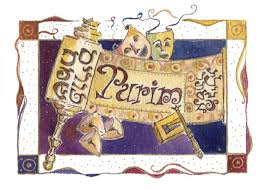The Feast of Purim

With these verses the author returns his original readers to their own time, decades after the developments in Persia had taken place. King Ahasuerus had been assassinated in his bedroom by his royal bodyguard. Esther and Mordecai had long since passed away and Purim was becoming an annual celebration of the Jewish calendar. It is as if the author is saying to us, “See, this is why we celebrate Purim as we do!” He clarifies that Mordecai recorded these events, and . . . sent letters to all the Jews . . . to have them celebrate annually so that future generations could remember the historic deliverance of their ancestors that allowed each subsequent generation to exist.
It is fitting that the fulfillment of ADONAI’s promise to the Jews in Persia should also be written down and memorialized. When God promised to obliterate the memory of the Amalekites, He told Moses to write down on a scroll as something to be remembered (Exodus 17:14). And many centuries later, the events of Esther’s story fulfilled this promise. In sharp contrast to the empty words of today’s so-called leaders, our Lord is a promise keeper who is able to accomplish what He has said He will do.
Purim joined the other five Jewish feasts that were commanded by Moses in the Torah (Leviticus 23:4-44), and celebrated incredible events surrounding the creation of the nation of Isra’el as ADONAI’s covenant people. Purim celebrates the survival of the Jews, even though it was dispersed in judgment of the Babylonian exile centuries later. By the time of Jesus, the feast of Hanukkah had also been inserted into the Jewish religious calendar as a reminder of their deliverance from the tyranny of Antiochus Epiphanies in the second century BC. Judas Maccabeus led that deliverance that was orchestrated by the hand of God. (see my commentary on The Life of Christ, to see link click Hj – Then Came Hanukkah at Jerusalem, and It Was Winter).
Purim, however, was based on a different authority than the Torah. Mordecai was not a prophet or a miracle worker, nor did he rule in Jerusalem. He wore the signet ring of the Persian king, not the ephod of the high priest. Mordecai simply wrote a decree that was distributed to the Jews throughout Persia, which led to their deliverance. Then, because of everything written in this letter and because of what they had seen and what had happened to them, the Jews took it upon themselves to establish the custom that they and their descendents and all who join them should without fail observe these two days every year, in the way prescribed and at the time appointed (Esther 9:26b-27). Consequently, the celebration of Purim, rather than being imposed on the Jews by ADONAI, began as a spontaneous response of God’s people to His continued faithfulness to the promises of the covenant.112



Leave A Comment